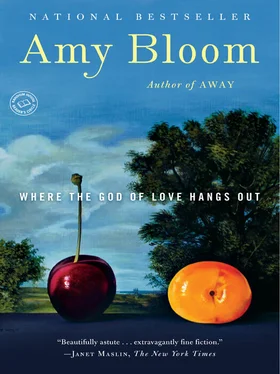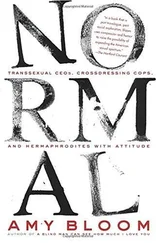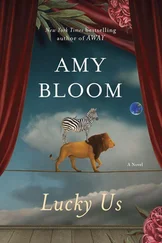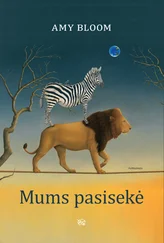“If I may change my mind, coffee would be lovely.”
Lionel says, “Maybe some Marion Williams in the background?”
Robert says, “Absolutely. Julia was playing ‘Remember Me’ just the other day.”
The day after the luncheon, they are still cleaning up. Buster washes and Lionel dries and Jewelle, who knows where everything goes, directs the putting away. Patsine sits at the kitchen table, with her feet up on a chair. Buster sings, “Some of these days, you’re gonna miss me, honey,” and Lionel growls, “Some of these days, you’re gonna miss me, babe,” and Patsine and Jewelle look at each other, eyes welling up, for their grieving husbands.
“Be useful,” Jewelle says to the boys, and she gives them both platters to put into the sideboard. There’s no point in giving them the wineglasses. Corinne pokes her head into the kitchen and disappears.
“Corinne,” her mother says. “I could use a hand here.”
Corinne walks into the middle of the kitchen in her grandmother’s black T-shirt, her own yoga pants, her mother’s black patent-leather pumps, and a green-and-black silk scarf tied around her neck, Apache-style. (“A-patch,” her grandmother said. “It’s a dance, not a rodeo.”) Her eyes are bright red.
“Nana loved this song,” Corinne says. “So, okay.”
Buster dries his hands and Lionel and his brother stand with their arms around each other.
“Pretty legs, great big knockers, that’s what sells them tickets at the door. Honey, these are real show stoppers, it’s what keeps ’em comin’ back for more.”
Corinne sang this song with her grandmother when no one was home. They shimmied and shook their behinds and one time they both slid down the banister onto pillows. They did the Electric Slide and Nana taught her The Stroll, too, and they danced around the living room like crazy women until they fell onto the couch, laughing and breathless.
“Pretty legs, great big knockers, that’s what put the two in two by four. Oooh, baby”—Corinne pauses for her big finish. She struts across the floor like a showgirl and flings open her arms—“Oooh, it ain’t the ballads, it ain’t the rockers, it’s pretty legs and … these great … big knockers!”
Her father and her uncle whistle and stamp their feet. Ari stares at her, and it’s not that sly, slitty look that makes her feel like hiding in the bathroom; his eyes are wide open. Her mother sits down next to Patsine and Patsine is holding Jewelle’s hand tightly but they are definitely smiling and Jordan shakes his head in admiration because there is no one like his baby sister. Corinne runs to her mother’s lap and buries her head in Jewelle’s shoulder. Jewelle puts her arms around her girl and showers her with kisses. Corinne can feel the bump of Patsine’s belly pressing behind her and Patsine’s hand on her hair.
Robert is standing on the other side of the kitchen, clapping. “Oh, my dear, what a gift,” he says. “What a send-off.”
Lionel looks at the empty kitchen table and he looks at the clock.
“It’s dinner time.” He hands food to each person and soon the table is covered with three cartons of Chinese food, from Julia’s favorite restaurant, and a deep dish of oyster stuffing and a Tupperware of sweet potatoes with maple syrup and two kinds of chocolate-pecan pie, one for the people who like bourbon and one for people who like it and have to avoid it, and a casserole of creamed spinach with half a nutmeg taped to the top, for the last minute. Jewelle sticks one of the good silver spoons into the bowl of cranberry sauce she brought from home and Buster sets bottles of pear and apple cider and red wine on the table and hands out the crystal wineglasses to everyone. Patsine rests her hands on the baby.
Lionel stands up and lifts his glass and looks at his brother. “Remember this one? A Jewish grandmother and her grandson are playing on the beach, building sandcastles. A wave comes along and drags the poor kid out to sea. The grandmother falls to her knees, screaming and crying. ‘Oh, God, oh, God, please save my only grandson. Please, he is the light of my life. Please, God, just save him, that’s all I ask of you.’”
“Oh, yeah,” Buster says and he stands up. “And another wave comes and drops the little boy back on the beach, good as new. The grandmother hugs and kisses him. Then she looks up at the heavens and says, ‘Excuse me? He had a hat.’”

Every death is violent.
The iris, the rainbow of the eye, closes down. The pupil spreads out like black water. It seems natural, if you are there, to push the lid down, to ease the pleated shade over the ball, down to the lower lashes. The light is out, close the door.
Mrs. Warburg called me at midnight. I heard the click of her lighter and the tiny crackle of burning tobacco. Her ring bumped against the receiver.
“Are you comfortable, darling?”
I was pretty comfortable. I was lying on her daughter’s bed, with my feet on Anne’s yellow quilt, wearing Anne’s bathrobe.
“Do you feel like talking tonight?”
Mrs. Warburg was the only person I felt like talking to. My boyfriend was away. My mother was away. My father was dead. I worked in a felafel joint on Charles Street where only my boss spoke English.
I heard Mrs. Warburg swallow. “You have a drink, too. This’ll be our little party.”
Mrs. Warburg and I had an interstate, telephonic rum-and-Coke party twice a week the summer Anne was missing. Mrs. Warburg told me about their problems with the house; they had some roof mold and a crack in the foundation, and Mr. Warburg was not handy.
“Roof mold,” she said. “When you get married, you move into a nice prewar six in the city and you let some other girl worry about roof mold. You go out dancing.”
I know people say, and you see it in movies, cascades of hair tumble out of the coffin, long, curved nails growing over the clasped hands. It’s not true. When you’re dead, you’re dead, and although some cells take longer to die than others, after a few hours everything is gone. The brain cells die fast, and blood pools in the soft, pressed places: the scapula, the lower back, the calves. If the body is not covered up, it produces a smell called cadaverine, and flies pick up the scent from a mile away. First, just one fly, then the rest. They lay fly eggs, and ants come, drawn to the eggs, and sometimes wasps, and always maggots. Beetles and moths, the household kind that eat your sweaters, finish the body; they undress the flesh from the bone. They are the cleanup crew.
Mrs. Warburg and I only talked about Anne in passing and only about Anne in the past. Anne’s tenth birthday had had a Hawaiian theme. They made a hot-dog luau in the backyard and served raspberry punch; they played pin-the-lei-on-the-donkey and had grass skirts for all the girls. “Anne might have been a little old for that, even then. She was a sophisticate from birth,” Mrs. Warburg said. I was not a sophisticate from birth. I was an idiot from birth, and that is why when the police first came to look for Anne, I said a lot of things that sounded like lies.
Mrs. Warburg loved to entertain; she said Anne was her mother’s daughter. We did like to have parties, and Mrs. Warburg made me tell her what kind of hors d’oeuvres we served. She said she was glad we had pigs-in-blankets because that’s what she’d served when she was just starting out, although she’d actually made hers. And did one of us actually make the marinara sauce, at least, and was Anne actually eating pork sausage, and she knew it must be me who made pineapple upside-down cake because that was not in her daughter’s repertoire, and she hoped we used wineglasses but she had the strong suspicion we poured wine out of the box into paper cups, which was true. I told her Anne had spray-painted some of our thirdhand furniture bright gold and when we lit the candles and turned out the lights, our apartment looked extremely glamorous.
Читать дальше













